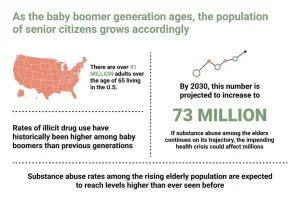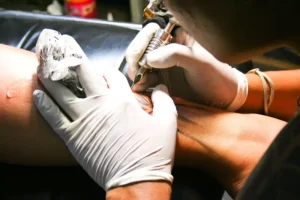
You may even find yourself interacting with them in a manner that is called codependency. People with addiction use a substance such as alcohol or drugs to the point where it affects their ability to function in daily life. They may have disordered thinking and behaviors due to changes in the brain’s structure and function. Additionally, as someone with addiction becomes tolerant over time, they may need larger doses of alcohol or drugs to feel the same effect. There are many different types of alcohol nonprofit organizations and advocacy groups for substance abuse which provide great resources and support for those who need support with their addiction.
Binge Drinking

Mutual-support groups provide peer support for stopping or reducing drinking. Group meetings are available in most communities at low or no cost, and at convenient times and locations—including an increasing presence online. This means they can be especially helpful to individuals at risk for relapse to drinking. Combined with medications and behavioral treatment provided by health care professionals, mutual-support groups can offer a valuable added layer of support. It should not be used in place of the advice of your physician or other qualified healthcare provider. Attending a 12-step program or other support group is one of the most common treatment options for alcohol abuse and addiction.

Taking care of yourself
About half the people who complete alcohol abuse treatment for the first time stay alcohol-free, while the other half relapse and return to drinking at some point. It’s common for people to require treatment more than once to finally achieve sobriety. That means you’ll need plenty of patience when supporting support for those who struggling with alcohol addiction your loved one’s recovery. It’s important to remember that you’re not alone in your struggle. Alcoholism and alcohol abuse affects millions of people, from every social class, race, background, and culture.
- Your health care provider or mental health provider will ask additional questions based on your responses, symptoms and needs.
- Medications also can help deter drinking during times when individuals may be at greater risk of a return to drinking (e.g., divorce, death of a family member).
- Some of these methods may seem harsh, but they come from a loving approach with the ultimate goal to help the person overcome their addiction and to help all parties heal.
- For many, continued follow-up with a treatment provider is critical for overcoming alcohol problems.
- Watching a friend or family member struggle with a drinking problem can be as heartbreakingly painful as it is frustrating.
Find help for substance abuse

Contact us today if you have questions about family resources, the recovery process or personalized treatment options for addiction that could work well for your loved one. When an addiction develops, family members and friends are also often directly impacted by the addiction. This helps you provide the love and support the addicted person needs in order to heal. While 12-step programs like Alcoholics Anonymous (AA) can benefit your loved one, Al-Anon meetings are great resources for you. Like AA, Al-Anon is a mutual-help group for the loved ones of those who struggle with alcohol misuse. Attending meetings, which are held all over the world, allow you to share your experience with others and find strength and hope from them and their experiences.
Find substance abuse treatment resources

Overall, gather as much information as you can about a program or provider before making a decision on treatment. If you know someone who has firsthand knowledge of a program, it may help to ask about their personal experience. The evidence suggests that the free and flexible assistance provided by mutual-support groups can help people make and sustain beneficial changes and, thus, promote recovery. The good news is that no matter how severe the problem may seem, most people with AUD can benefit from some form of treatment. Many others substantially reduce their drinking and report fewer alcohol-related problems.
- As someone close, you’re in a good place to encourage them to get support.
- And data from the previous year showed that only about one tenth of individuals with an SUD received the treatment they needed.
- The above mentioned scenarios are referred to as triggers—the people, places, situations, and things that can increase an individual’s risk of relapse.
- We strive to create content that is clear, concise, and easy to understand.
- Allow the person to learn how to gracefully reject tempting offers by themselves.
Family and friends tend to try to protect their loved one from those consequences, but that often has the unintended effect of enabling the substance abuse to get worse. People in early recovery typically need emotional and material support. This support is helpful and healthy, but it’s important to let them know you will only be supporting their recovery efforts – nothing else. Focus on supporting your loved one’s healthy, future goals, such as continuing education or finding a job. Your health care provider or mental health provider will ask additional questions based on your responses, symptoms and needs.
- AAC accepts many private insurance policies, as well as some Medicaid policies.
- Attending meetings, which are held all over the world, allow you to share your experience with others and find strength and hope from them and their experiences.
- The American Psychiatric Association advises that remaining in treatment for an adequate time is critical to recovery.
- And recognize that now is not the time to nag or lecture your loved one about what they should have done in the past or how things could have been better.
Lifestyle and home remedies
While we are unable to respond to your feedback directly, we’ll use this information to improve our online help.

